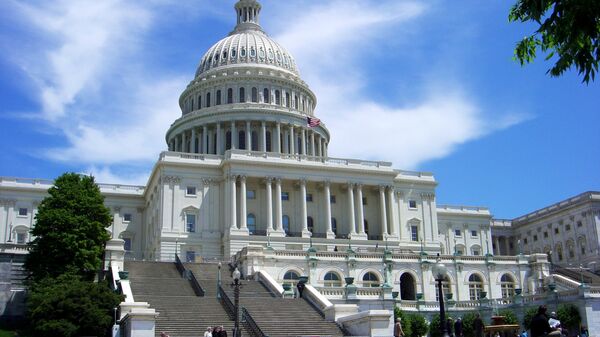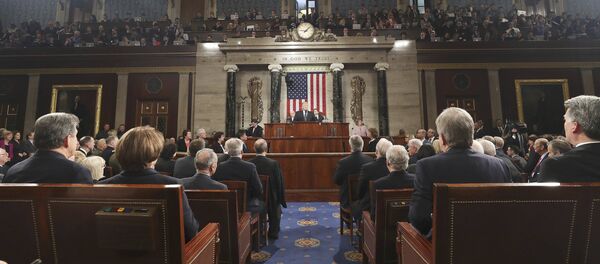MOSCOW (Sputnik) — According to official statement by the US Senate released on Monday, several US senators reached a bipartisan agreement on legislation to expand sanctions against Russian entities over allegedly "conducting malicious cyber activity on behalf of the Russian government" and supplying weapons to the Syrian authorities. The agreement also provides for broader competence of the Congress in reviewing any decisions by Trump to ease the existing sanctions.
"They need to limit Trump as much as possible in his cautious intention to establish a more or less reasonable dialogue with Moscow, given that the president cannot lift these sanctions alone, without the approval of the Congress," Kosachev said, adding that the news seems "strange" considering that there have been no developments in bilateral relations lately.
The terms on new Russian sanctions are expected to be added to another, rather unrelated, bill on Iran, imposing sanctions over ballistic missile testing. This, according to Kosachev, is done to speed up their adoption and therefore speaks for itself.
"The senators are in a hurry, having 'straddled' the Russian issue," Kosachev said, suggesting that Trump is heavily immersed in the atmosphere of anti-Russia psychosis that reigns on the Capitol Hill, to make even an elementary diplomatic courtesy seem almost like a betrayal of the homeland.
"It's not an exaggeration: Sen. Lindsay Graham has already very pompously stated that 'if the president does not sign a law that punishes Russia, he will betray democracy.' The way I see it, only 'enemy of the people' title can top that now," the parliamentarian said.
The connection between Russian sanctions and the Iranian dossier, he said, further indicates how self-valuable sanctions are. "It is not about Russia's behavior and, accordingly, their cancellation does not depend on it," Kosachev said.
"Sanctions, their causes and, therefore, possibility for their abolition are heavily rooted in the minds of those who introduced them. And things are not looking well in there," the politician concluded.
While campaigning as a presidential candidate, Trump had on numerous occasions talked about improving relations with Russia, famously asking "Wouldn't it be great if we could actually get along with Russia and fight ISIS [Daesh] together?" However, upon winning the election in November 2016, his presidency has been shadowed by a number of ongoing official investigations into Russia's influencing the US election and colliding with the Trump campaign.


